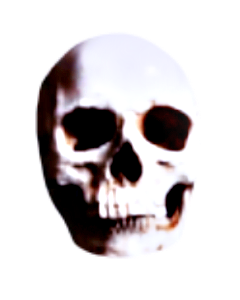MAY 21, 2011 // THE MUSIC WE MAKE, TAKE 2
AMSTERDAM, NETHERLANDS
I woke up to the bright sun shining on my face. It was eight AM. Church bells were ringing outside the open window, and children were rowing boats by on the canal. We walked to breakfast and were disappointed to find our spot was closed. We had to eat an unremarkable hard boiled egg and toast elsewhere.
After that we went back to Lotje’s apartment and made a movie on the balcony. A neighbor was watering his garden shirtless down below. He looked up, smiled, and gave us a salute.
When we were done with the movie, we walked through the park across town again. People were having picnics. I felt ill at ease despite the beautiful spring afternoon.
We stopped at the dead end of two canals in the shadow of a former garrison. There we stood at the arch of a bridge overlooking house boats. and set up the camera. Several girls in a bicycle procession winked and smiled. Then two strange men with gaunt faces stopped and peered into the camera to offer criticism of how I'd framed the shot.
We finished filming three songs and walked to Cafe Monument Je near Prinzengracht canal. I stopped and talked to a young buttoned up sort who had passed us making the movie. He was enthusiastic and said that most Dutch young people are only interested in Electronic Music these days. “I’m afraid you two are relics” he told me. I did feel like a relic. I gave him a cd. He said thank you an bid me a fond farewell.
We walked further along the canal. The houses were four hundred years old and sinking diagonally into the marshy ground the city was built on. Long rows of windows reflected the house boats. We peered into the homes. We saw shining wooden floors, book shelves from the hulls of ships, hand crafted clocks, gardens growing from broken antique machinery, musical instruments, record players, and ladders to lofts.
We crossed an arched bridge as the sun was setting, then turned onto a narrow cobble stone street. Lanterns were hanging from ropes connecting the opposing walls of the corridor. When we reached Cafe Monument Je, Rolf was standing outside. He was tall, wiry, and severe. His face was handsome and his grey hair was neatly styled like the turn of the last century. He wore an apron, and was sweeping the terrace of his cafe.
He greeted us with a handshake and a nod of his head. We told him we were hungry and he suggested the restaurant next door. Dinner there was very good. We had rice, salad, and fish. We sat accidentally next to a couple from San Francisco who were in a band called Hang Jones. The man had lots of tattoos and a rockabilly hair cut. When the couple departed, Eric told me all about the Misfits before Glen Danzig lost the plot. After that we walked down the steep stairs to the terrace of Cafe Monument Je.
The inside of the venue had a wooden floor and a bar. The floor was covered by fine grains of sand. There was a piano in the corner at the far end of the room from the front door. We took a table off the stage, set up our portable battery powered amp, and tuned our guitars.
The show went well. It was 9:30 in the evening when we finished. The northern twilight was still glowing in the windows. Summer was near. I had sung loud and Eric had smashed away on the old piano. A Dutchman laughed heartily and tried singing a long. Later he told us he got rich from his job and told them "fuck you I don't need this anymore." Then he laughed loud and told story after story about how he spent his money traveling into dangerous situations for sport. Redneck bars in New Mexico where drunk men fired pistols at rodeo clowns. Junks in Vietnam with holes in the bottom the size of saucer eyed goblins. His friend was a toothless much older man with weeping eyes. Some strange ladies interrupted the stories at some point to offer us sugar topped cakes.
Rolph kept a watchful eye on the proceedings and periodically insisted on providing us with drinks. At the end of the evening he came over and put his hands on our shoulders and in his dignified, stone faced way offered appreciation. He told us we are welcome back to play anytime. We thanked him and started walking a long way home carrying our camera, tripod, amplifier and two guitars.
We got lost. After some frustration we found a bus. I asked Eric if I’m a failure. He answered in measured tones as the darkened city passed by outside the rattling windows. I felt weary beyond repair.

